Broccoli are tree-shaped plants that feature a compact floret head attached to various sized stalks and stems. Due to its various components, this vegetable has a complex of flavors and textures ranging from soft and flowery (the flower) to fibrous and crunchy (the stem and stalks). Broccoli belongs to the Cruciferous family, which includes cabbage, cauliflower, Brussels sprouts. All vegetables from this family are known for their rich content of valuable nutrients and low calorie content.
The color of this vegetable can vary from gray green and dark green to purple-green depending on the variety. One of the most popular types of broccoli is known as Italian green or Calabrese, named after the Italian province of Calabria where it originally grew. Broccoli is from the cauliflower family. Other vegetables related to broccoli are broccolini (a cross between broccoli and cabbage) and broccoflower (a cross between broccoli and cauliflower).
Broccoli originates from Italy. In ancient Roman times, this vegetable was produced from wild cabbage. It quickly spread to the Middle East, where it was prized for its edible flower heads and was subsequently further cultivated in Italy. Broccoli was brought to the United States during colonial times and popularized by Italian immigrants.
Composition of broccoli
Broccoli contains glycosinolates—phytochemicals that break down into compounds called indoles and isothiocyanates (such as sulforaphane).
Broccoli also contains carotenoids and lutein. They are an excellent source of vitamins K, C and A, as well as folate, fiber, phosphorus, potassium, magnesium and vitamins B6 and E. 156 grams of broccoli contain 43.68 calories and 4.66 grams of protein. They are rich in iron, vitamins B5 and B9.
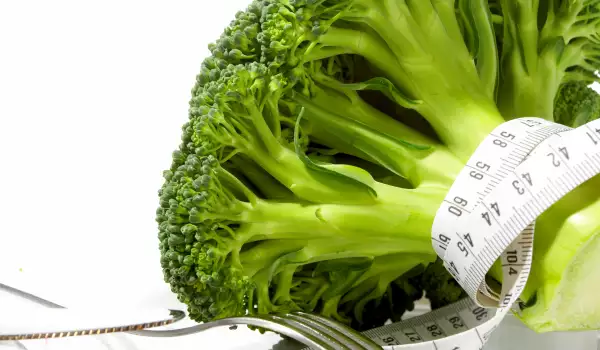
Choosing and storing broccoli
When choosing broccoli, those with compact flower heads that are not bruised should be selected. They should be an even color - either dark green or purple-green, depending on the variety, but not with a yellowish tint. In addition, broccoli should not have a yellowish bloom on it, as this is a sign that it is overripe. Stems and stalks should be firm with no slimy spots on them.
Broccoli should be stored in opened plastic bags in the refrigerator, where they can stay fresh for a week. They should not be washed before being placed in the refrigerator. Broccoli can be stored for a year if blanched and then frozen.
Culinary use of broccoli
To make the most of the beneficial qualities of broccoli, prepare it as quickly as possible after buying it. Cook them for a shorter time to keep them crunchy and fresh.
Broccoli can be stewed, boiled and baked. Before that, their stem is removed and the broccoli itself is divided into small florets. If the stem will be used in the recipe, you need to peel it and cut it into circles. If you want to use broccoli in a salad, boil it first and then cool it in a bowl of ice cold water, so that it can maintain its nice green color. Broccoli goes very well with blue cheese, cheese and cooking cream.

You can make great oven-baked casseroles with them. They combine perfectly with chicken. Boiled broccoli can only be seasoned with melted butter and garlic. Their taste is well complemented by mustard and lemon juice. Breaded broccoli is a delicious and very quick appetizer.
Cooking broccoli gives off a pungent smell of sulfur compounds released during processing, which is quite unpleasant.
With broccoli, you can prepare a number of delicious dishes: Baked Broccoli, Steamed Broccoli, Broccoli Soup, Broccoli Casserole, Broccoli Puree and many more.
Benefits of broccoli
Broccoli's sulforaphane and indoles help fight certain cancers such as lung, colon, breast, ovarian and bladder cancer.
New research proves that these substances in broccoli also work on a much deeper level. These compounds actually signal genes to increase production of enzymes involved in detoxification, a cleansing process by which the body removes harmful compounds.
Sulforaphane-rich broccoli also helps in treating or preventing infection, which is a major cause of ulcers.
Sulforaphane can also help repair sun-damaged skin. Broccoli also helps reduce the risk of heart disease. They contain powerful antioxidants from the carotenoid family called lutein and zeaxanthin, which are good for eyesight and the pupils of the eye.
Broccoli also helps build strong bones. One cup of boiled broccoli contains 74 mg of calcium plus 123 mg of vitamin C, which significantly improves the absorption of and calcium. These vegetables are also useful for building a strong immune system. Broccoli also reduces the risk of birth defects, as one cup of broccoli supplies 94 mcg of folate and vitamin B, which are essential for proper cell division and DNA synthesis.
Broccoli is extremely useful for eye health as well. The lutein they contain prevents age-related macular degeneration and cataracts. The vitamin A in them also helps in sharper vision and in maintaining visual acuity.
Broccoli regulates blood pressure and is extremely useful for hypertension. Thanks to their magnesium and calcium content, they are an excellent natural alternative for treating high blood pressure.
Benefits of broccoli for women
While beneficial for everyone, broccoli bring special health benefits to the female half of humanity. It is true that not all ladies like this particular vegetable, but it works wonders for the female body.
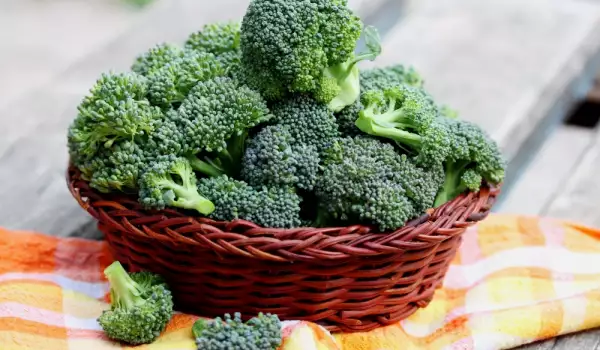
First of all broccoli greatly aids weight loss and is used in various diets to achieve the desired body. They have been proven to speed up metabolism and support natural weight loss.
Vitamin E in broccoli is very valuable for skin health, hair, eliminates harmful toxic substances and slows down aging processes in the body. The dietary fiber in broccoli aids digestion and prevents constipation, which many women are prone to.
Folic acid is often considered a predominantly female vitamin. It is important for fertility and has been shown to increase the chances of conception and during pregnancy it supports the health of both the fetus and the mother.
Broccoli also has a choleretic effect, which is extremely important in terms of reducing cellulite, which many women suffer from. Harmful fats in the body are reduced and the processes of the liver is eased.
Benefits of broccoli for children
Although children rarely show the desire to take a bite of broccoli, the effect of broccoli on the growing organism is extremely important. Vitamins in broccoli strengthen children's immune system, do not cause irritations and allergies, protect against various inflammatory processes.
In recent years, there has been a serious increase in obesity in children and broccoli helps prevent the accumulation of extra weight. They can be combined with other vegetables if the child does not like their taste.
Harms from broccoli
Broccoli contains natural substances called goitrogens, which can affect thyroid function. People with thyroid problems should avoid broccoli consumption. However, it is best to consult a doctor before completely excluding them from the menu.
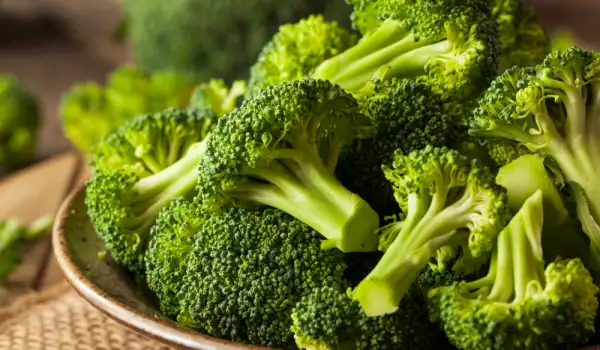




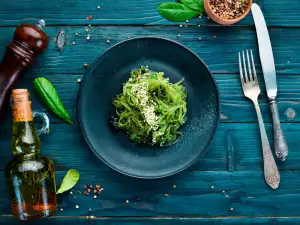









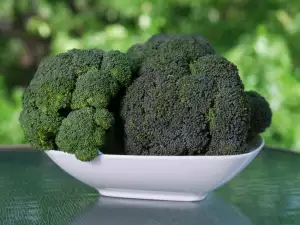




Comments